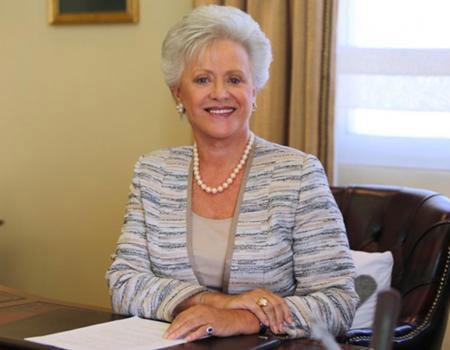You are here
Princess Muna inaugurates major global nursing event in Geneva
By JT - May 26,2018 - Last updated at May 26,2018

HRH Princess Muna, patron for Nursing and Midwifery in the Eastern Mediterranean Region and president of the Jordanian Nursing Council (File photo)
AMMAN — HRH Princess Muna, patron for Nursing and Midwifery in the Eastern Mediterranean Region and president of the Jordanian Nursing Council officially has recently opened the 8th biennial Global Forum for Government Chief Nursing and Midwifery Officers (GCNMOs) and the 7th Triad meeting on Nursing and Midwifery in Geneva, Switzerland.
The high level meetings, which were held earlier this month, are the ultimate platform for government chief nursing and midwifery officers, leaders and representatives of national nursing and midwifery associations and regulators from more than 90 countries, a statement from the princess’ office said.
Other participants included the International Council of Nurses (ICN), the International Confederation of Midwives (ICM) and the World Health Organisation (WHO) , which joined the gathering to discuss and decide on practical solutions for the fundamental issues facing their professions as well as to seek their input into the proceedings of the World Health Assembly.
Princess Muna, who was the keynote speaker at the event, highlighted in her remarks the importance of investing in nursing and midwifery to improve health outcomes and economic development.
She added that nurses and midwives have a dynamic role in leading and realising the WHO’s 13th General Programme of Work which “constructs a great road map to achieve the health goals”, the statement said.
She added that all health resolutions and interventions to achieve sustainable development goals including the global health agenda “cannot be implemented well without the active engagement of nurses and midwives, real investment in the nursing and midwifery workforce, giving them equal footing in shaping and evaluating health policy, as well as strengthening their leadership and empowered roles”.
HRH emphasised that “business as usual’ is no longer an option and called for creating the evidence to position nursing as an added value for the health industry and economy.
Last month, the statement added, Princess Muna held separate talks and meetings with high level officials; from the WHO, the ICN, the ICM, Nursing Now Campaign and the USA National Council of State Boards of Nursing, which focused on the strategic partnership among theaw organisations and Jordan, progress on the Global Strategy on Human Resources for Health, the recommendations and action plan of the UN High-level Commission on Health Employment and Economic Growth, Nursing Now Campaign, the World Health Organisation Strategic Directions for Nursing and Midwifery 2016-2020 and the way forward in investing in the health workforce and maximising their contributions to the Sustainable Development Goals including the global health agenda and Universal health coverage.
The 2018 Triad statement was released outlining the participants’ commitment to 11 actions and a powerful following message: “Investments in nursing and midwifery workforces are a key driver of effective health systems, thriving populations, improving health outcomes and prosperous economies.”
HRH had previously launched the WHO Global Strategic Directions for Nursing and Midwifery, in May 2016, in Geneva and has championed the report recommendations and action plan of the UN High-level Commission on Health Employment and Economic Growth (September 2016) as well as the launching of the “Nursing Now” campaign at the global and national levels (February and April 2018).
Related Articles
AMMAN — HRH Princess Muna, chairperson of the Jordanian Nursing Council and World Health Organisation Patron for Nursing and Midwifery in th
AMMAN — HRH Princess Muna has reaffirmed the importance of investing in nursing and midwives human resources, especially in relation to econ
HRH Princess Muna, president of the Jordanian Nursing Council (JNC), has said that the irregularities in the medical labour force is the main challenge facing developing countries.















